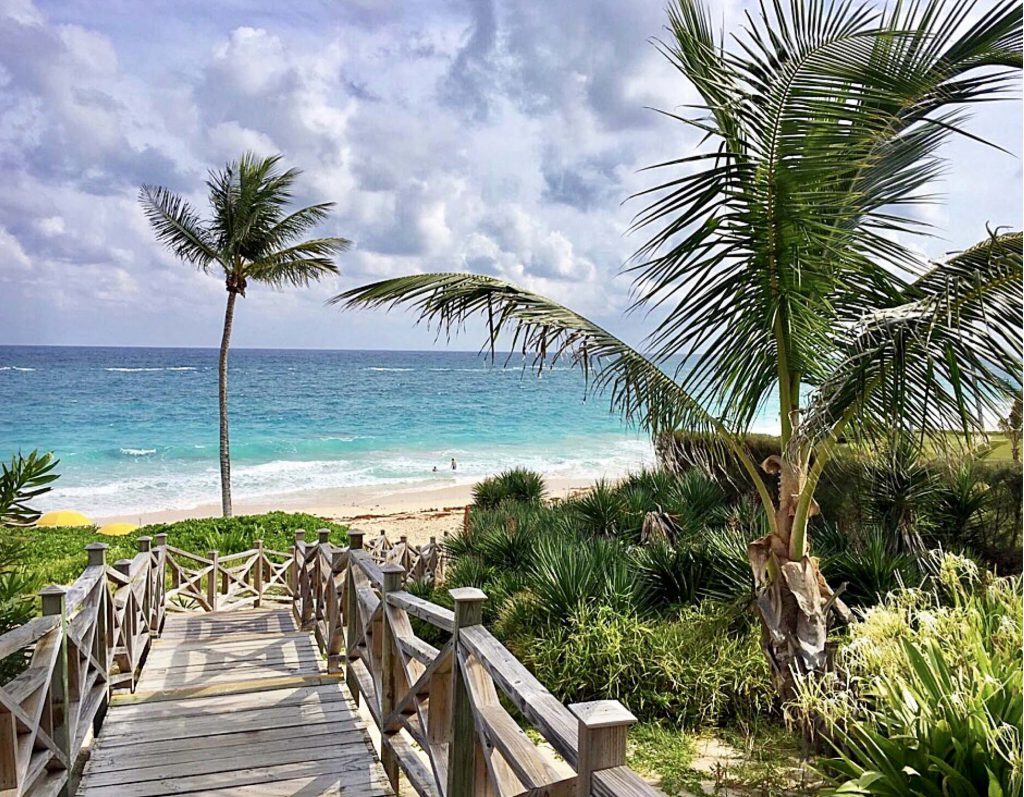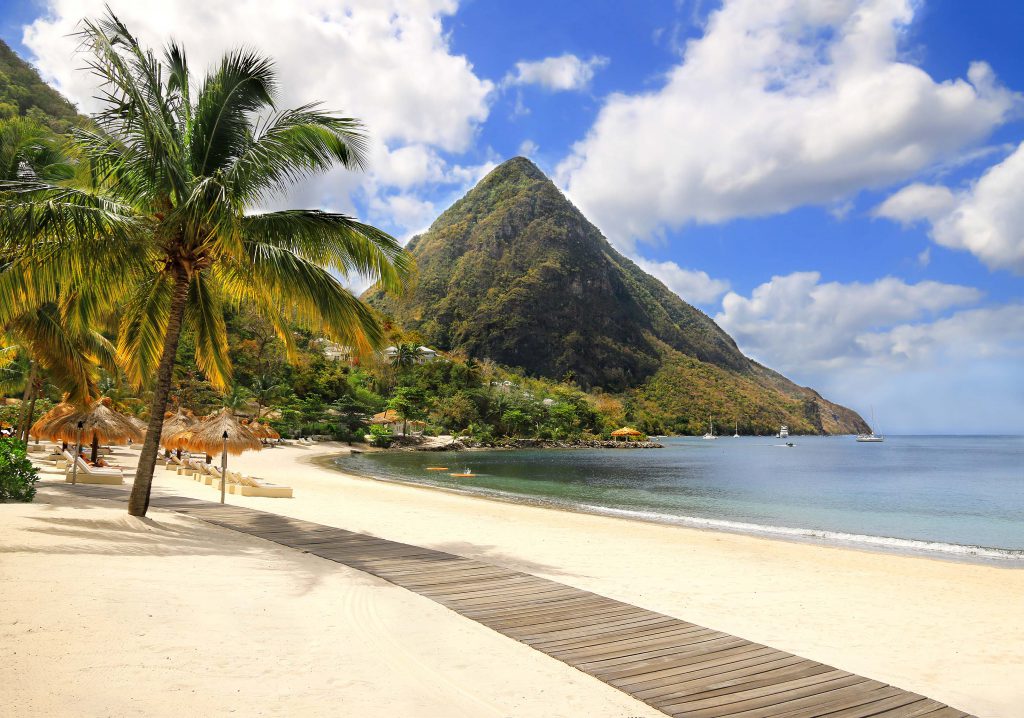COVID-19 Crisis: Caribbean Countries Begin Slow Process of Reopening Borders
by Karen Rollins Jun 8, 2020

Some Caribbean countries have started the slow process of reopening their borders after being closed for more than two months because of the COVID-19 pandemic.
Most of the islands in the region depend heavily on tourism for their economies to function, and thousands of people also rely on the sector for their livelihoods.
Governments have to balance the public’s health and safety with the need to ensure that people can work and feed themselves and their families.
While some countries are still keeping their airports and ports closed, for now, others like St Lucia, Aruba, and Antigua and Barbuda, are preparing to welcome visitors again in June.
But there will be several strict conditions for entry as outlined below:
Antigua and Barbuda
During a virtual meeting on ‘Re-opening Antigua and Barbuda For Tourism,’ Tourism Minister Charles Fernandez confirmed that the V.C Bird International Airport will reopen for flights from the US on 4 June after being closed for 10 weeks.
The first flight to land will be an America Airlines plane from Miami.
All passengers will have to undergo a COVID-19 test within 48 hours of flying and have proof to show it was negative. They may still face further health checks on arrival.
Prime Minister Gaston Browne told the Miami Herald that visitors will be encouraged to stay in, or around, hotels and resorts, rather than travelling around the country.
All hotel staff and tour guides will be tested before resuming work.
Mr Fernandez told the media: “Even though we can never be 100%, the idea is to be as rigid as possible to prevent any kind of spread.”
Aruba
In a notice published on the official Aruba tourism website, the Government of Aruba announced a tentative reopening of the island between 15 June and 1 July.
All visitors will undergo new screening measures at the airport, including temperature checks.
Tourists and residents must adhere to a daily 12am-5am curfew which includes public transport and taxis.
The Aruba Tourism Authority and the Department of Public Health have instituted a mandatory cleaning and hygiene certification programme for all tourism-related businesses across the country.
Outdoor restaurants reopened from 25 May, but all establishments, except a designated 24-hour pharmacy, have to close by 10pm. Casinos, spas, bars, and nightclubs are still closed at the moment.
Bermuda

Bermuda is expected to open its borders on 1 July.
According to a press release from the Bermuda Tourism Authority, tourists will have to adhere to various protocols before arrival, on entry, and when leaving.
Visitors will need to obtain a certified negative COVID-19 test within 72 hours of departure, wear face masks when travelling to the departure airport, and wear face masks and maintain physical distancing at the departure airport and on the plane.
On arrival, tourists will have to undergo COVID-19 testing at the airport or at their accommodation, and stay at their hotel / villa until the results are available. They will also need to have a temperature check twice a day and record the results.
While on the island everyone is encouraged to wear masks, practice social distancing and regularly use hand sanitiser. On departure, another temperature check will be taken.
Jamaica
Jamaica officially opened its borders to tourists on 15 June.
In an address to the nation, Mr Holness said re-entry protocols are in place based on a risk assessment of the countries from which people are travelling from, and their travel routes.
He said: “Countries that have a similar management and profile result for the epidemic regarding spread, death rate, infection prevention and control measures, contact tracing protocols and other such criteria could constitute a ‘travel bubble’ that would determine the protocols that would apply to their entry.”
Mr Holness added: “Our public health professionals have provided us with guidance on the protocols that will keep us all safe. It is now up to each and every one of us to be strong fences as we transition to the new normal of living with COVID-19.”
St Lucia

St Lucia has announced a phased reopening which began with the Hewanorra International Airport accepting arrivals from the US from 4 June.
Passengers are required to show proof that they have been tested for COVID-19 within 48 hours of flying and received a negative result.
All visitors must wear masks throughout their flight. Mandatory temperature checks will also take place at the airport.
Around 1,500 hotel rooms in Saint Lucia are preparing to open pending completion of a new COVID-19 certification process. Hotels must meet specific criteria for sanitisation, social distancing and other COVID-19 protocols before accepting guests.
In a press release, Minister of Tourism Dominic Fedee, said: “Our new protocols have been carefully crafted and will build confidence among travellers and our citizens.
“The Government of Saint Lucia remains resolved to protect both lives and livelihoods as it jumpstarts its economy.”
US Virgin Islands
The US Virgin Islands reopened its borders to leisure travellers from 1 June, according to Commissioner of Tourism Joseph Boschulte.
Visitors have to pass standard temperature checks and health screenings on arrival or face a mandatory 14-day quarantine order.
People are advised to wear face masks inside businesses, and gatherings are restricted to 10 people or less.
Hotels and other vacation properties have been given new cleaning procedures and social-distancing protocols which they must follow.
—
Most other Caribbean countries have not announced any confirmed plans to reopen their airports and other ports of entry while the COVID-19 pandemic continues.
You are advised to check official tourism authority websites and government channels for updated and accurate information.
Sources: Caribbean National Weekly, UncommonCaribbean.com, BBC News, Afar.com, Black Enterprise, Go to Bermuda, Office of the Prime Minister of Jamaica, and Aruba.com.







